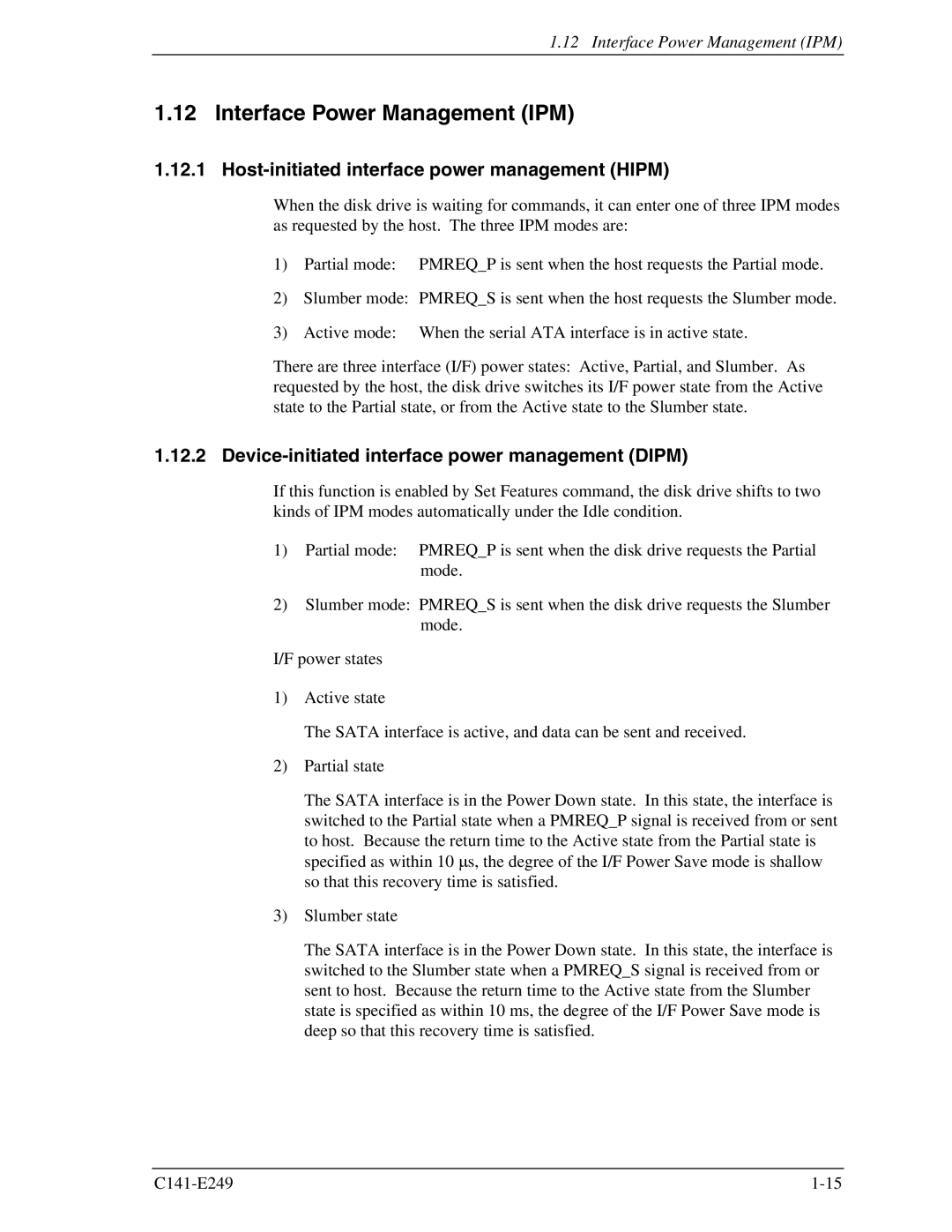
1.12 Interface Power Management (IPM)
1.12 Interface Power Management (IPM)
1.12.1 Host-initiated interface power management (HIPM)
When the disk drive is waiting for commands, it can enter one of three IPM modes as requested by the host. The three IPM modes are:
1)Partial mode: PMREQ_P is sent when the host requests the Partial mode.
2)Slumber mode: PMREQ_S is sent when the host requests the Slumber mode.
3)Active mode: When the serial ATA interface is in active state.
There are three interface (I/F) power states: Active, Partial, and Slumber. As requested by the host, the disk drive switches its I/F power state from the Active state to the Partial state, or from the Active state to the Slumber state.
1.12.2 Device-initiated interface power management (DIPM)
If this function is enabled by Set Features command, the disk drive shifts to two kinds of IPM modes automatically under the Idle condition.
1)Partial mode: PMREQ_P is sent when the disk drive requests the Partial mode.
2)Slumber mode: PMREQ_S is sent when the disk drive requests the Slumber mode.
I/F power states
1)Active state
The SATA interface is active, and data can be sent and received.
2)Partial state
The SATA interface is in the Power Down state. In this state, the interface is switched to the Partial state when a PMREQ_P signal is received from or sent
to host. Because the return time to the Active state from the Partial state is specified as within 10 ∝s, the degree of the I/F Power Save mode is shallow so that this recovery time is satisfied.
3)Slumber state
The SATA interface is in the Power Down state. In this state, the interface is switched to the Slumber state when a PMREQ_S signal is received from or sent to host. Because the return time to the Active state from the Slumber state is specified as within 10 ms, the degree of the I/F Power Save mode is deep so that this recovery time is satisfied.
